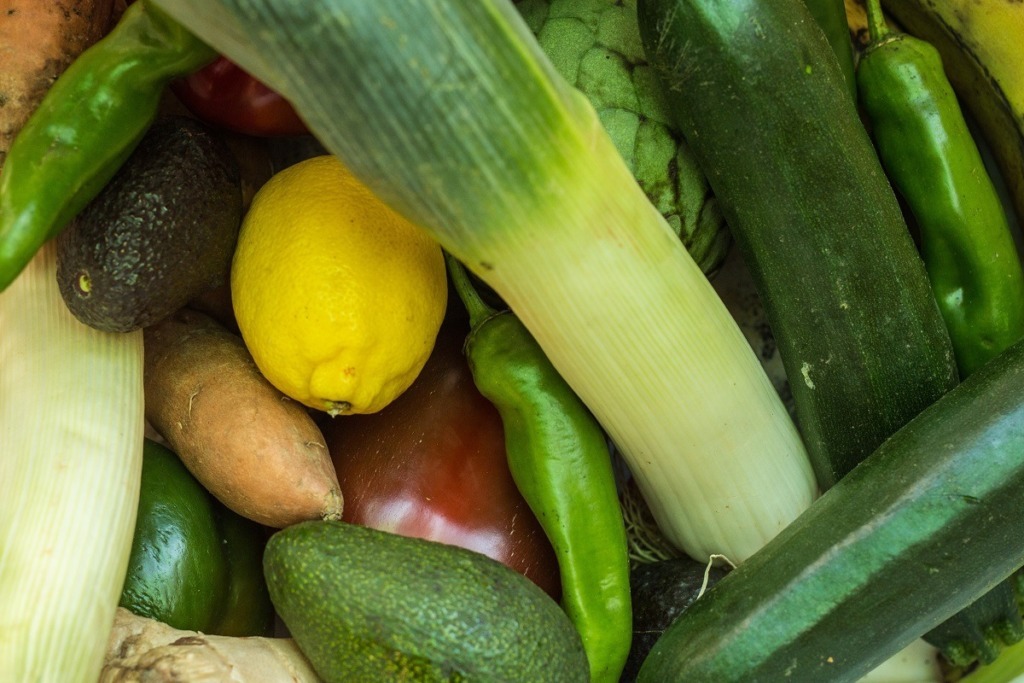
Written by Adriana Kreuger
Written by Organic products are becoming more and more popular these days, because more and more people are consciously paying attention to their diet. Organic food comes from ecologically controlled cultivation. They must neither contain genetically modified organisms nor have they been treated with synthetic pesticides or artificial fertilizers (i.e. chemical-synthetic nitrogen compounds). They also contain fewer additives than many other foods. In the case of animal products, the organic certification ensures that the animals are kept in a species-appropriate manner and are generally not treated with growth hormones and antibiotics.
It is true that organic products are often not exactly cheap compared to conventionally produced foods. Nevertheless, they should find their way into shopping baskets more often because with organic food you are not only doing something good for yourself but also for the environment and animals. There are 10 reasons why organic food creates more value for others.
1 Full taste experience
Products from ecologically controlled cultivation largely do without artificial flavourings and additives. Instead of flavour enhancers, organic products rely on the food’s own taste. This is usually more intense with organic fruit and vegetables than with conventional food because organically grown fruit and vegetables usually grow more slowly. Therefore they usually have a lower water content, which enhances the flavour. In addition, organic food is also particularly healthy because, due to its lower water content, it usually contains more vitamins and minerals than conventional food and it is also less contaminated with residues of chemical pesticides or nitrates.
2 Animal Welfare
Particularly high requirements are placed on the keeping of animals on organic farms. The animals on organic farms have more space in the barn and an outdoor run. The barn must also have sufficient natural light. In addition, painful interventions such as removing the curly tails from pigs or cropping the beaks from poultry are prohibited.
Concentrated feed for the animals is also prohibited on organic farms. Instead, the animals are given organic feed specially tailored to their needs. By buying organic meat, you are not only doing yourself a favour, but also making an important contribution to animal welfare.
3 Transport manufacturing
Food produced according to ecological guidelines is precisely labelled. The manufacturing process of the product can be precisely traced by a control number noted on the respective product. The control number can be used, for example, to find out from which farm the purchased product comes. In addition, all organic farmers are visited once a year by the organic certifying body. The visit examines whether the farmers comply with the prescribed guidelines for organic products. This ensures that when consumers buy an organic product, they actually receive high-quality food.
4 Less chemistry
About 320 different additives are permitted for conventional foods. In contrast, only about 15% of it is used in organic products. Artificial colours and preservatives as well as artificial flavour enhancers are not contained in organic food.
However, it is not only in the organic products that there is less chemistry, but organically grown grain, fruit and vegetables also come into contact with fewer synthetic pesticides in the field. The use of certain pesticides is prohibited in organic farming. Instead old varieties of fruit and vegetables and grains that are more resistant are grown. By not using these pesticides, not only the food but also the environment is protected, which often benefits the biodiversity of animals and plants.
5 Climate friendly
Organic food not only tastes better, it is also good for our climate. According to statistics, fewer harmful greenhouse gases are emitted in the production of organic food than in the production of conventional food. The lower emission of greenhouse gases is due to the fact that no synthetic nitrogen fertilizers are used in the cultivation of organic fruit and vegetables. Its production requires a lot of energy.
In addition, the use of organic fertilizer builds up a lot of humus in the soil. This is why carbon dioxide can be bound particularly well in these soils. This leads to a relief of the climate. Overdrafted soils from conventional agriculture, on the other hand, are associated with the emission of nitrous oxide, which damages the climate just like carbon dioxide. However, organic products from overseas quickly lose their advantages in terms of climate balance. It is therefore best to buy regionally and seasonally.
6 No genetic engineering
There is not only less chemistry in organic food, but also no genetic engineering because the producers of organic food are obliged by the regulation of the Australian government to refrain from genetic engineering. Genetically modified organisms (GMO) are prohibited in organic food. The renunciation of genetic engineering does not only apply to the production of animal foods. The organic certification on animal products indicates that the animals have not been provided with genetically modified feed.
7 Sustainability
When it comes to organic food, great importance is attached to sustainability. The environmentally friendly economy conserves important resources and preserves natural productivity.
The crop rotation is particularly important in the concept of sustainability. This means that different plants are grown one after the other on a field. Care is taken to ensure that the nutrients, which a plant has removed from the soil, will be added back to the soil by the next plant as soon as possible. This protects the soil and ensures that that soil continues to contain nutrients. Organically farmed soil is also usually richer in humus and can store more water.
Through the concept of sustainability, not only us, but also future generations can still benefit from nature and its resources.
8 Fairtrade
Admittedly, organic products are often more expensive than conventional products, because of the laborious and time-consuming cultivation methods. Organic prices and wages go hand in hand. In many cases, organic products therefore not only stand for food that is produced in harmony with nature, but also for fair remuneration and fair treatment of producer and consumer.
9 Environmental Protection
Those who buy organic products are not only doing something good for their body, they are also protecting the environment. On one hand, this happens because organic farmers forego certain fertilizers and the use of synthetic pesticides. This not only benefits the food but also the soil. The soil is protected, there is less nitrate and the groundwater also remains clean. On the other hand, in the production of organic food, the soil is protected in a special way through a well thought – out crop rotation. Most of the time, eco-areas are therefore more species – rich and provide a home for a wide variety of plants and animals.
10 Feeling good
With today’s abundance of food in the supermarkets, it is easy to ponder:
- Where was the food produced?
- Does it come from the region or has it already traveled a long way?
- Which foods are really of high quality?
Choosing an organic product does not resolve all of these questions but at least some. Organic food not only tastes delicious but is also of good quality. Furthermore, buying organic products often also supports the region where many of the products offered in the supermarket come from. The purchase of organic products always leaves a good feeling, which makes them taste twice as good.
10 reasons how organic food 10 reasons how organic food 10 reasons how organic food 10 reasons how organic food



